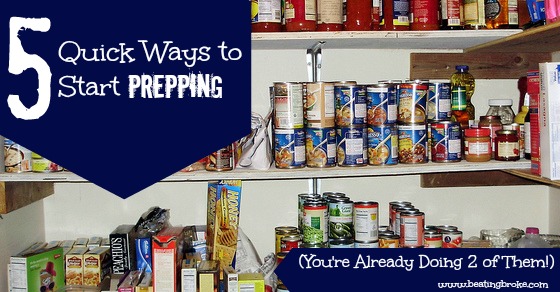A few months ago, I went grocery shopping in the morning on the first of the month, and I couldn’t believe how crowded it was. After all, it wasn’t a Saturday morning when the usual grocery shopping rush occurs, but a Wednesday morning.
I waited in line to pay for over 20 minutes. When I asked the cashier what was going on, she said that it was the first of the month, so many people’s SNAP benefits had just replenished. These people were stocking up after possibly having had very little to eat at the end of the month when they were out of funds.
This phenomenon is not unusual. Many people who are living on a tight budget (with or without receiving SNAP), after scrimping and doing without for the last 10 to 14 days of the month, are happy to go shopping and stock up. The problem is that this stock up can consume most of their food budget, and the cycle starts all over again.
I mentioned in my last post that my family is experiencing a period of low income and a tight budget. Luckily, I don’t foresee this situation remaining stagnant for years. Within another year or two, my husband will be eligible to apply for a much better job, and as my kids grow up and become more self-sufficient, I should have more time to grow my freelance business.
However, for now, we sometimes run into this feast or famine pattern. In our high cost of living area, we budget $700 a month for groceries for our family of 5. (We have food intolerances including beans, gluten, dairy, and eggs, so we have to eat a special diet.) The last week of the month, we’re eating an odd mix of foods, and we don’t have as many fruits and vegetables as we’d like.
Spend the Same Amount Every Day to Avoid Feast and Famine
I’ve been researching different strategies to help with our grocery budget. One that I found is rather basic–determine how much you can spend per day on groceries. For instance, in February, we can spend $25 a day on groceries ($700 divided by 28 days), while in May, we can only spend $22.58 per day.
If I’ve not been to the grocery store for 6 days, I’ll theoretically have $135.48 to spend on that trip, based on a 31 day month.
Using this pattern, I can avoid the feast or famine food cycle by making sure I have enough grocery money, even at the end of the month.
Drawbacks to Spending the Same Amount Every Day
The biggest drawback I see to spending the same amount every day is that there is not much flexibility to take advantage of sales. For instance, if I normally buy ground turkey for $2.95 a pound, but it’s on sale for $2.45 a pound, I should stock up. Maybe I’d buy 25 pounds at this discounted rate. That right there would cost me $61.25, or almost half of my weekly budget.
However, it would save me $12.50 on ground turkey, and the stock would last us a few months.
While spending the same amount every day helps even out the feast or famine cycle, it may not be the best way to stretch your grocery dollars. Instead, I prefer to buy on sale in bulk so I pay less and get more food, even if it means at the end of the month, each meal with meat has ground turkey in it.
How do you handle your grocery budget? Do you set a fixed amount to spend each week, or do you set a fixed amount for the month so you can take advantage of sales?
Melissa is a writer and virtual assistant. She earned her Master’s from Southern Illinois University, and her Bachelor’s in English from the University of Michigan. When she’s not working, you can find her homeschooling her kids, reading a good book, or cooking. She resides in New York, where she loves the natural beauty of the area.



